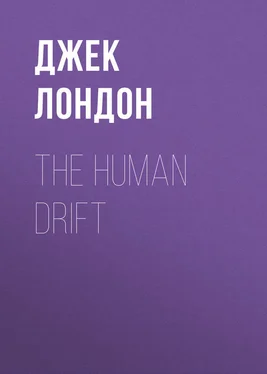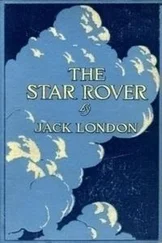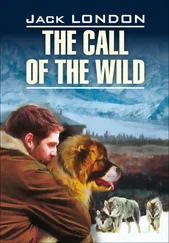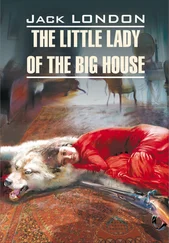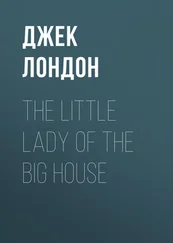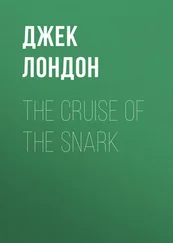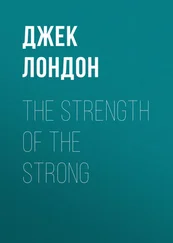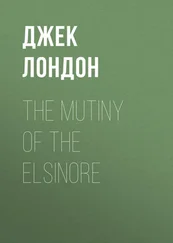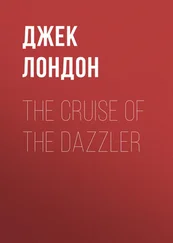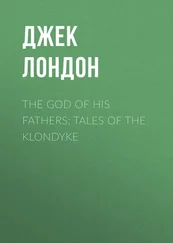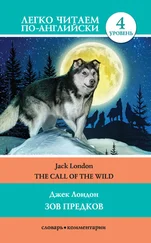Джек Лондон - The Human Drift
Здесь есть возможность читать онлайн «Джек Лондон - The Human Drift» — ознакомительный отрывок электронной книги совершенно бесплатно, а после прочтения отрывка купить полную версию. В некоторых случаях можно слушать аудио, скачать через торрент в формате fb2 и присутствует краткое содержание. Жанр: foreign_antique, foreign_prose, на английском языке. Описание произведения, (предисловие) а так же отзывы посетителей доступны на портале библиотеки ЛибКат.
- Название:The Human Drift
- Автор:
- Жанр:
- Год:неизвестен
- ISBN:нет данных
- Рейтинг книги:5 / 5. Голосов: 1
-
Избранное:Добавить в избранное
- Отзывы:
-
Ваша оценка:
- 100
- 1
- 2
- 3
- 4
- 5
The Human Drift: краткое содержание, описание и аннотация
Предлагаем к чтению аннотацию, описание, краткое содержание или предисловие (зависит от того, что написал сам автор книги «The Human Drift»). Если вы не нашли необходимую информацию о книге — напишите в комментариях, мы постараемся отыскать её.
The Human Drift — читать онлайн ознакомительный отрывок
Ниже представлен текст книги, разбитый по страницам. Система сохранения места последней прочитанной страницы, позволяет с удобством читать онлайн бесплатно книгу «The Human Drift», без необходимости каждый раз заново искать на чём Вы остановились. Поставьте закладку, и сможете в любой момент перейти на страницу, на которой закончили чтение.
Интервал:
Закладка:
Jack London
The Human Drift
THE HUMAN DRIFT
“The Revelations of Devout and Learn’d
Who rose before us, and as Prophets Burn’d,
Are all but stories, which, awoke from Sleep,
They told their comrades, and to Sleep return’d.”
The history of civilisation is a history of wandering, sword in hand, in search of food. In the misty younger world we catch glimpses of phantom races, rising, slaying, finding food, building rude civilisations, decaying, falling under the swords of stronger hands, and passing utterly away. Man, like any other animal, has roved over the earth seeking what he might devour; and not romance and adventure, but the hunger-need, has urged him on his vast adventures. Whether a bankrupt gentleman sailing to colonise Virginia or a lean Cantonese contracting to labour on the sugar plantations of Hawaii, in each case, gentleman and coolie, it is a desperate attempt to get something to eat, to get more to eat than he can get at home.
It has always been so, from the time of the first pre-human anthropoid crossing a mountain-divide in quest of better berry-bushes beyond, down to the latest Slovak, arriving on our shores to-day, to go to work in the coal-mines of Pennsylvania. These migratory movements of peoples have been called drifts, and the word is apposite. Unplanned, blind, automatic, spurred on by the pain of hunger, man has literally drifted his way around the planet. There have been drifts in the past, innumerable and forgotten, and so remote that no records have been left, or composed of such low-typed humans or pre-humans that they made no scratchings on stone or bone and left no monuments to show that they had been.
These early drifts we conjecture and know must have occurred, just as we know that the first upright-walking brutes were descended from some kin of the quadrumana through having developed “a pair of great toes out of two opposable thumbs.” Dominated by fear, and by their very fear accelerating their development, these early ancestors of ours, suffering hunger-pangs very like the ones we experience to-day, drifted on, hunting and being hunted, eating and being eaten, wandering through thousand-year-long odysseys of screaming primordial savagery, until they left their skeletons in glacial gravels, some of them, and their bone-scratchings in cave-men’s lairs.
There have been drifts from east to west and west to east, from north to south and back again, drifts that have criss-crossed one another, and drifts colliding and recoiling and caroming off in new directions. From Central Europe the Aryans have drifted into Asia, and from Central Asia the Turanians have drifted across Europe. Asia has thrown forth great waves of hungry humans from the prehistoric “round-barrow” “broad-heads” who overran Europe and penetrated to Scandinavia and England, down through the hordes of Attila and Tamerlane, to the present immigration of Chinese and Japanese that threatens America. The Phoenicians and the Greeks, with unremembered drifts behind them, colonised the Mediterranean. Rome was engulfed in the torrent of Germanic tribes drifting down from the north before a flood of drifting Asiatics. The Angles, Saxons, and Jutes, after having drifted whence no man knows, poured into Britain, and the English have carried this drift on around the world. Retreating before stronger breeds, hungry and voracious, the Eskimo has drifted to the inhospitable polar regions, the Pigmy to the fever-rotten jungles of Africa. And in this day the drift of the races continues, whether it be of Chinese into the Philippines and the Malay Peninsula, of Europeans to the United States or of Americans to the wheat-lands of Manitoba and the Northwest.
Perhaps most amazing has been the South Sea Drift. Blind, fortuitous, precarious as no other drift has been, nevertheless the islands in that waste of ocean have received drift after drift of the races. Down from the mainland of Asia poured an Aryan drift that built civilisations in Ceylon, Java, and Sumatra. Only the monuments of these Aryans remain. They themselves have perished utterly, though not until after leaving evidences of their drift clear across the great South Pacific to far Easter Island. And on that drift they encountered races who had accomplished the drift before them, and they, the Aryans, passed, in turn, before the drift of other and subsequent races whom we to-day call the Polynesian and the Melanesian.
Man early discovered death. As soon as his evolution permitted, he made himself better devices for killing than the old natural ones of fang and claw. He devoted himself to the invention of killing devices before he discovered fire or manufactured for himself religion. And to this day, his finest creative energy and technical skill are devoted to the same old task of making better and ever better killing weapons. All his days, down all the past, have been spent in killing. And from the fear-stricken, jungle-lurking, cave-haunting creature of long ago, he won to empery over the whole animal world because he developed into the most terrible and awful killer of all the animals. He found himself crowded. He killed to make room, and as he made room ever he increased and found himself crowded, and ever he went on killing to make more room. Like a settler clearing land of its weeds and forest bushes in order to plant corn, so man was compelled to clear all manner of life away in order to plant himself. And, sword in hand, he has literally hewn his way through the vast masses of life that occupied the earth space he coveted for himself. And ever he has carried the battle wider and wider, until to-day not only is he a far more capable killer of men and animals than ever before, but he has pressed the battle home to the infinite and invisible hosts of menacing lives in the world of micro-organisms.
It is true, that they that rose by the sword perished by the sword. And yet, not only did they not all perish, but more rose by the sword than perished by it, else man would not to-day be over-running the world in such huge swarms. Also, it must not be forgotten that they who did not rise by the sword did not rise at all. They were not. In view of this, there is something wrong with Doctor Jordan’s war-theory, which is to the effect that the best being sent out to war, only the second best, the men who are left, remain to breed a second-best race, and that, therefore, the human race deteriorates under war. If this be so, if we have sent forth the best we bred and gone on breeding from the men who were left, and since we have done this for ten thousand millenniums and are what we splendidly are to-day, then what unthinkably splendid and god-like beings must have been our forebears those ten thousand millenniums ago! Unfortunately for Doctor Jordan’s theory, those ancient forebears cannot live up to this fine reputation. We know them for what they were, and before the monkey cage of any menagerie we catch truer glimpses and hints and resemblances of what our ancestors really were long and long ago. And by killing, incessant killing, by making a shambles of the planet, those ape-like creatures have developed even into you and me. As Henley has said in “The Song of the Sword”:
“The Sword Singing—
Driving the darkness,
Even as the banners
And spear of the Morning;
Sifting the nations,
The Slag from the metal,
The waste and the weak
From the fit and the strong;
Fighting the brute,
The abysmal Fecundity;
Checking the gross
Multitudinous blunders,
The groping, the purblind
Excesses in service
Of the Womb universal,
The absolute drudge.”
As time passed and man increased, he drifted ever farther afield in search of room. He encountered other drifts of men, and the killing of men became prodigious. The weak and the decadent fell under the sword. Nations that faltered, that waxed prosperous in fat valleys and rich river deltas, were swept away by the drifts of stronger men who were nourished on the hardships of deserts and mountains and who were more capable with the sword. Unknown and unnumbered billions of men have been so destroyed in prehistoric times. Draper says that in the twenty years of the Gothic war, Italy lost 15,000,000 of her population; “and that the wars, famines, and pestilences of the reign of Justinian diminished the human species by the almost incredible number of 100,000,000.” Germany, in the Thirty Years’ War, lost 6,000,000 inhabitants. The record of our own American Civil War need scarcely be recalled.
Читать дальшеИнтервал:
Закладка:
Похожие книги на «The Human Drift»
Представляем Вашему вниманию похожие книги на «The Human Drift» списком для выбора. Мы отобрали схожую по названию и смыслу литературу в надежде предоставить читателям больше вариантов отыскать новые, интересные, ещё непрочитанные произведения.
Обсуждение, отзывы о книге «The Human Drift» и просто собственные мнения читателей. Оставьте ваши комментарии, напишите, что Вы думаете о произведении, его смысле или главных героях. Укажите что конкретно понравилось, а что нет, и почему Вы так считаете.
